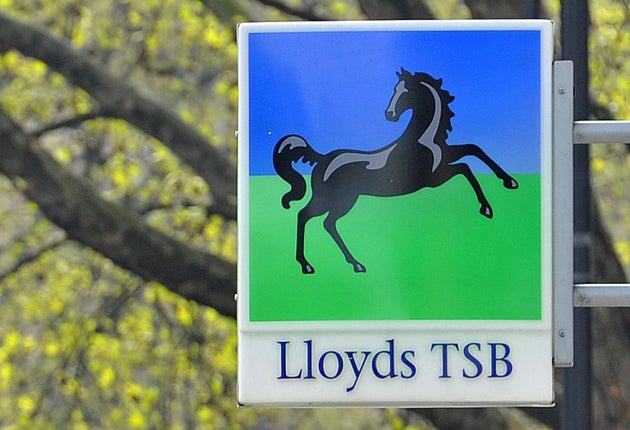Lloyds shows some common sense

Lloyds Banking Group finally came to its senses this week and withdrew from the outrageous attempt by banks to avoid paying back victims of their payment protection insurance rip-off. The long-running PPI saga should have ended months ago but the banks have used all sorts of legal shenanigans and delaying tactics to ensure that millions of people owed money have had to wait.
Lloyds' announcement on Thursday – while it delivered its latest results – came as something of a surprise, particularly as the amount the bank has set aside to meet its PPI compensation payments is much higher than we expected. The bank has earmarked £3.2bn to cover its potential PPI liabilities.
That, in a stroke, suggests that the total cost to all the banks of paying compensation for mis-selling the expensive and often unnecessary insurance could top £9bn, three times the original estimates. But victims of the scandal may still have a long time to wait before seeing any of the cash.
The banks have been knocked back several times by the courts in their attempts to avoid meeting their obligations. The latest shabby ploy comes to a head next week. Currently, the banks are fighting Financial Services Authority rules implemented last December that forced the banks to review past sales of PPI to see if customers deserved compensation.
The banks – apart from Santander which admirably declined to be part of the current nonsense – argued that they shouldn't have to pay compensation to old cases, some going back six years. The banks' trade body, the British Bankers' Association, asked for a judicial review of the situation but last month a judge in the High Court found against them.
The banks have until next Tuesday to ask for the right to make an application to appeal against that decision and – even after Lloyds' withdrawal from the case on Thursday – the BBA refused to rule out an appeal. A spokesman told me the banks are still "carefully reviewing the judgment of 20 April and considering whether to make an application to appeal".
The day after the High Court judgment I called for banks to start playing fair. The fact that Lloyds – by far the biggest retail bank with around a third of the market – has bitten the bullet and accepted the folly of continuing the case should signal to other banks it's time to do the same.
If they haven't done so by the time you read this, I hope that by next Tuesday, the banks stop the case and start the process of giving people their money back. The climbdown should be an embarassment for the bank that has for so long shamefullyrefused to play fair with customers.
But it's a triumph for new boss António Horta-Osório. The move was very much seen as his first step in clearing out some of the troubles that have beset the bank in recent years.
It's probably no coincidence that Horta-Osório was until recently British boss of Santander, the only main high street bank that refused to take part in this year's High Court challenge to the FSA.
Santander itself has had several problems, many as a result of the merger between Abbey and Alliance & Leicester. But the bank has made great strides in repairing its battered reputation, as witnessed by the latest financial services complaints statistics, which show Santander has been replaced by Barclays as Britain's most complained-about bank.
However, if you put together all the Lloyds Banking Groups' high street brands – which include Halifax and Bank of Scotland – it receives more complaints than the others. Horta-Osório's challenge is to change that – this week's move is a great start.
Subscribe to Independent Premium to bookmark this article
Want to bookmark your favourite articles and stories to read or reference later? Start your Independent Premium subscription today.

Join our commenting forum
Join thought-provoking conversations, follow other Independent readers and see their replies